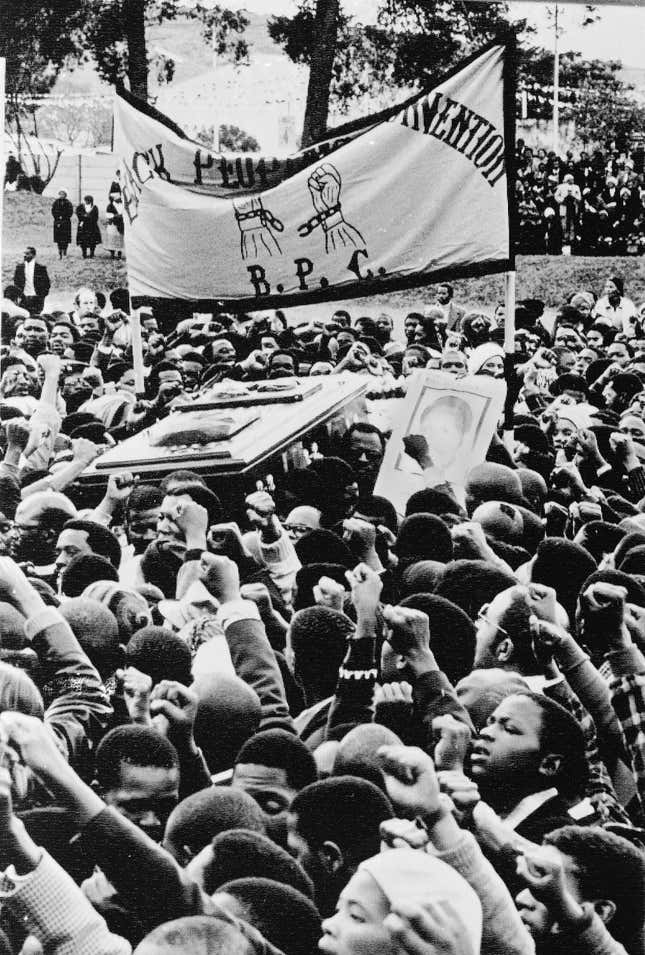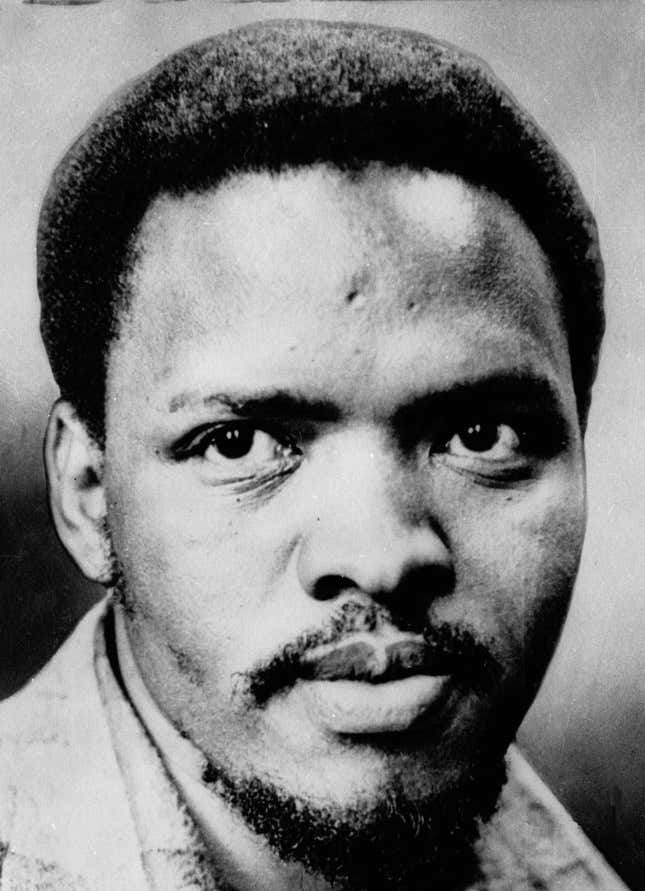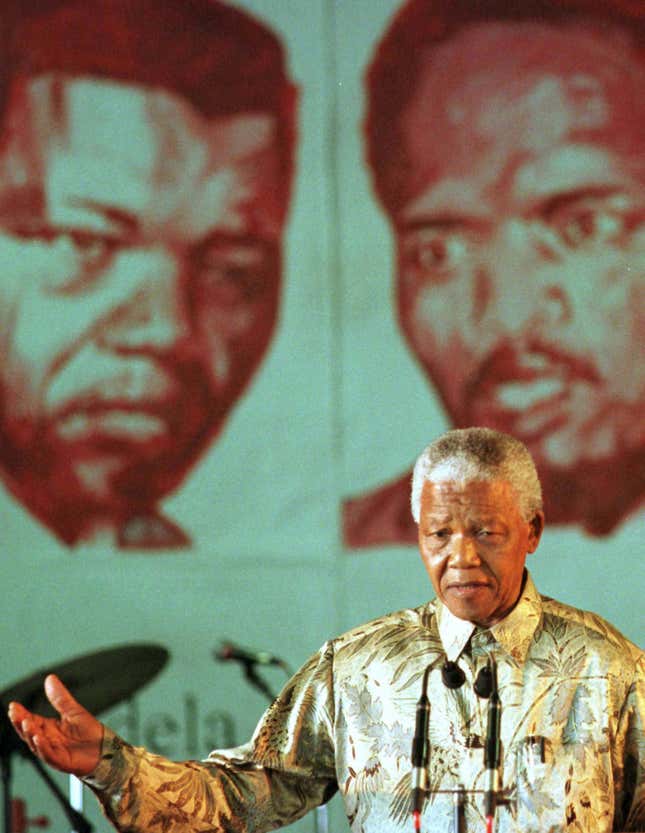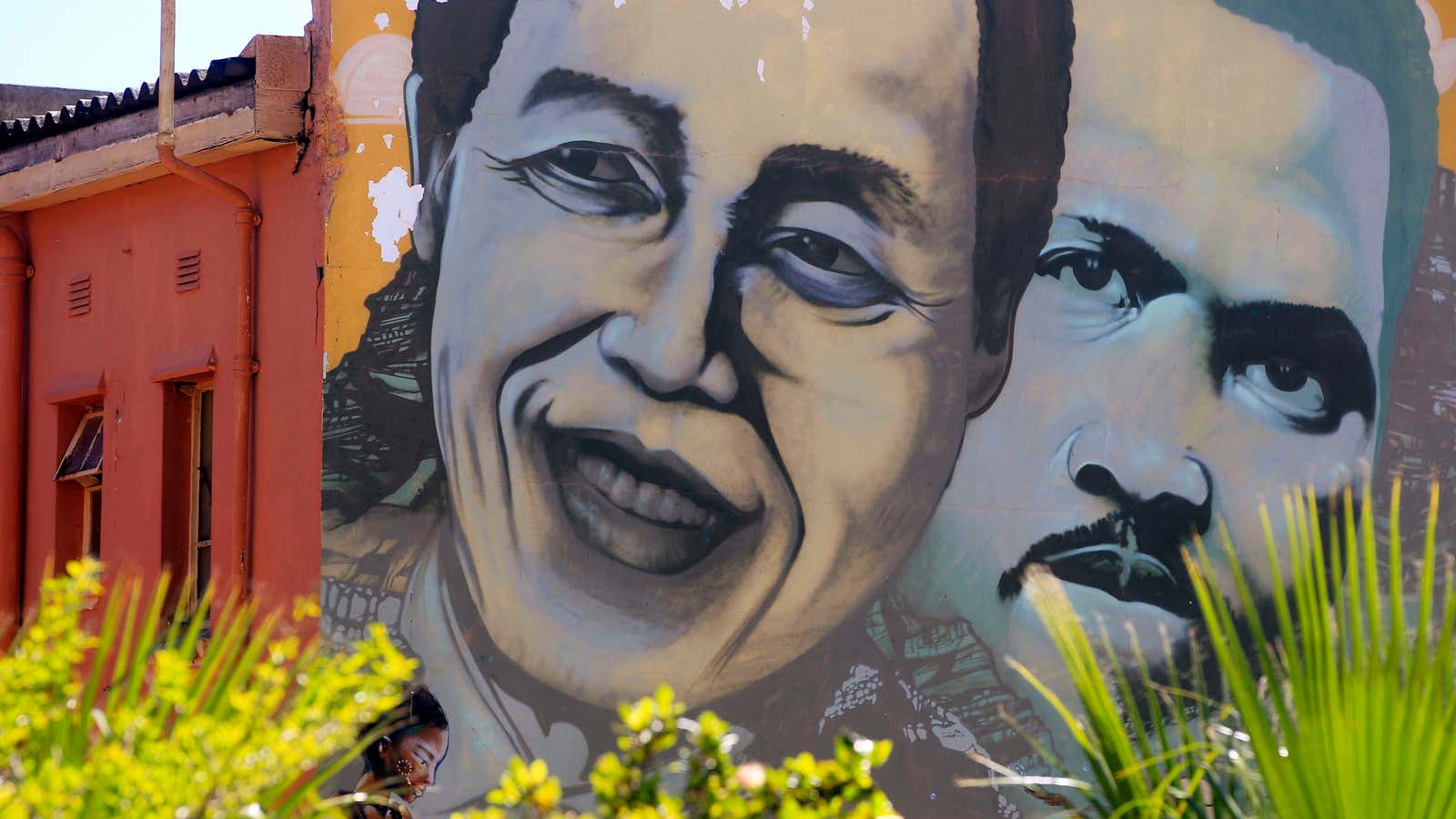“Had Biko been alive today…,” is a refrain often repeated in South Africa, especially when the country finds itself struggling to meet its own ideals.
Bantu Steve Biko died at the hands of apartheid police on Sept. 12, 1977. Handcuffed, beaten, and naked for twenty days before his death of a massive brain hemorrhage Biko was only 31 year old when he died. Now, a new generation is increasingly turning to this martyr as a guide through the new South Africa, perhaps much more than they do Nelson Mandela
“Why, then, would you kill Biko and do so in a brutal and humiliating manner?” asked Julius Malema, now the loudest voice articulating the frustrations of South Africa’s youth. “They killed Biko because he had an idea: that blacks must be proud.”

The apartheid government feared ideas that threatened to subvert the segregationist system that kept black South Africans subjugated to the benefit of the white minority. By the time Biko became a student leader, Nelson Mandela and his comrades were imprisoned on Robben Island, and their movement the African National Congress was struggling in exile.
As young as he was, Biko became the voice of the Black Conscious Movement, a political ideology centered on black identity and uncompromising pride in that identity. Biko, a medical student, was practical in his application of this concept, exploring what it meant for leadership, religion, academia and geopolitics.
Without Biko in the post-apartheid political landscape, South Africans have clung to his words that have remained. Biko’s collection of essays, I write what I like, has sold more than 70,000 copies in southern Africa alone since it was reprinted in 2004, says Pan MacMillan South Africa publisher Andrea Nattrass. It also has the dubious title of being one of the most popular titles among book thieves, she adds.
“It makes me lament even more that South Africans lost him so soon,” said Nattrass.

To mark the 40th anniversary of Biko’s death, the publishing house is also releasing The Testimony of Steve Biko, the transcript of a four-day trial in 1976, which saw Biko explain and defend the Black Consciousness Movement. The transcript, which was immediately banned by the apartheid government, shows Biko’s off-the-cuff wit, fully-developed ideas and sharp intellect. Along with this is a re-release of No Fears Expressed, a collection of Biko’s quotes that still resonate today.
“The future will always be shaped by the sequence of present-day events,” Biko is quoted in the latter collection. “Being black is not a matter of pigmentation being black is a reflection of a mental attitude.”
Biko’s ideas, however, were never adopted by the African National Congress and the parties who represented this identity-driven way of thinking have since disappeared to almost a whimper in the country’s parliament today. And yet, on the streets, Biko’s face is everywhere on murals and T-shirts. During the student protests for free education, it was Biko’s words that became the rallying call of grassroots movement. As the iconocization of Biko continues to grow, a new generation is exploring the roots of the Black Consciousness Movement, often at the rejection of the reconciliatory message of Mandela. For people of color, Biko’s views remain subversive.
“It’s a very disorganizing way of being in a world that worships, or that is built in eurocentricism, particularly white supremacy,” Economic Freedom Fighters spokesman Mbuyiseni Ndlozi told a local radio station. His party, led by Malema, has grown rapidly among young people with its socialist ideology for black economic emancipation and its irreverence for president Jacob Zuma and the present day ANC.

The “miracle” of South Africa’s peaceful transition is a narrative that tried to depict the country as non-racial. In the early years of democracy, the euphoria, international attention and sheer star power of Mandela certainly encouraged this view.
Twenty two years after the end of apartheid, Mandela’s reconciliation project feels inadequate to the millions of poor black South Africans. Indicators show that South Africa is deeply still segregated along color lines and black South Africans still disproportionately suffer the indignity of poverty. Many of them are young and feel the compromises made to end apartheid and avoid civil war were too meek. That is when the questions arise of what might Biko have done.
Biko was not perfect, and South African feminist academics have found issue with some of his thinking. His legacy is kept alive by a foundation in his name and an annual lecture series that has featured fellow thinkers like Angela Davis. He also never had the opportunity to lead his country and imagining where he would have stood feels like futile nostalgia. It also misses the value Biko has always offered—his ideas and their honest practicality.
